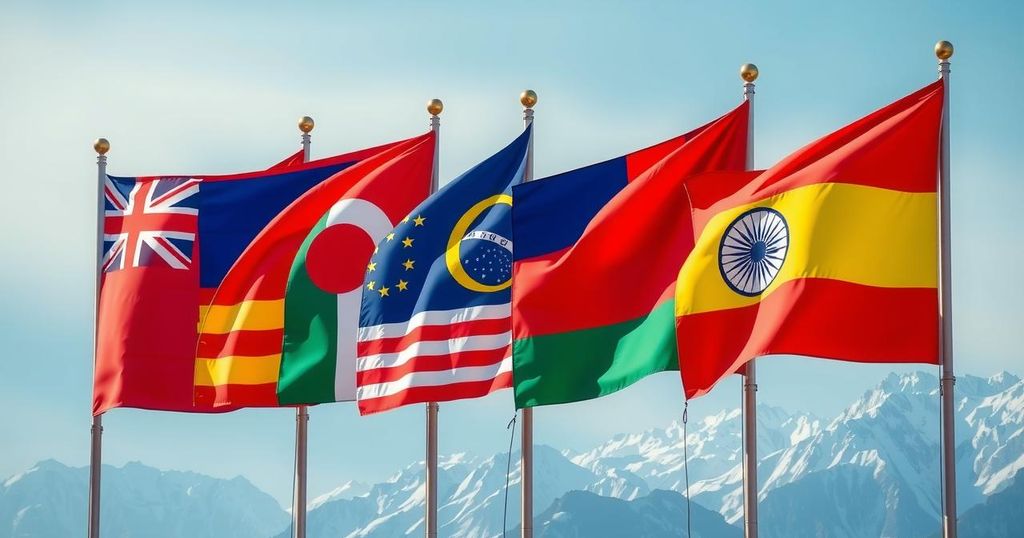World news
ASIA, BELARUS, EUROPE, EUROPE/ASIA, EV, EVGENY USTINOV, GENEVA, GERMANY, HUMAN RIGHTS, INTERNATIONAL LAW, INTERNATIONAL MILITARY TRIBUNAL, KAZAKHSTAN, KYRGYZSTAN, NAZI GERMANY, NAZIS, NUREMBERG, PRESS FREEDOM, RUSSIA, SOVIET UNION, SWITZERLAND, TAJIKISTAN, UN HUMAN RIGHTS COUNCIL, UZBEKISTAN, WAR, WAR CRIMES
Lena Nguyen
0 Comments
Kyrgyzstan and Allies Condemn Nazi Glorification at UN Council
A coalition of Belarus, Kazakhstan, Kyrgyzstan, Russia, Tajikistan, and Uzbekistan condemned Nazi glorification at the UN Human Rights Council. They highlighted the Nuremberg Tribunal’s findings on Nazi war crimes and criticized attempts to compare the Soviet Union’s role to that of Nazi Germany. The statement emphasized preserving the truth about their shared victory over Nazism.
At the 58th session of the UN Human Rights Council in Geneva, Belarus, Kazakhstan, Kyrgyzstan, Russia, Tajikistan, and Uzbekistan jointly condemned any glorification of Nazi ideology. This statement coincides with the impending 80th anniversary of the conclusion of World War II, which remains the most devastating conflict in history.
The statement, presented by Russian representative Evgeny Ustinov, emphasized, “We consider any attempt to glorify Nazis and their accomplices absolutely unacceptable.” It further asserted that the principal Nazi war criminals, who instigated and conducted World War II, were deemed criminal by the Nuremberg Tribunal, which documented the heinous acts of expulsion and extermination committed against civilians.
The participating countries labeled any efforts to equate the culpability of the Soviet Union and Nazi Germany in instigating World War II as “immoral and blasphemous.” This characterization was made in remembrance of the millions who sacrificed their lives to rid the world of Nazism’s atrocities.
The joint statement concluded by affirming the commitment of these nations to uphold the truth about their shared victory against Nazism. It reiterated the necessity to combat ideologies rooted in hatred, as well as discrimination based on ethnicity, race, or religion, thereby rejecting all forms of inhumane behavior.
In summary, the statement from six countries at the UN Human Rights Council firmly condemns the glorification of Nazis, underlining the historical context and responsibilities of Nazi leaders as adjudicated by the Nuremberg Tribunal. The condemnation of attempts to equate the Soviet Union’s role with that of Nazi Germany, along with the emphasis on countering hate ideologies, reflects a collective commitment to remembering the sacrifices made during World War II and to ensuring such horrors are not repeated.
Original Source: 24.kg




Post Comment